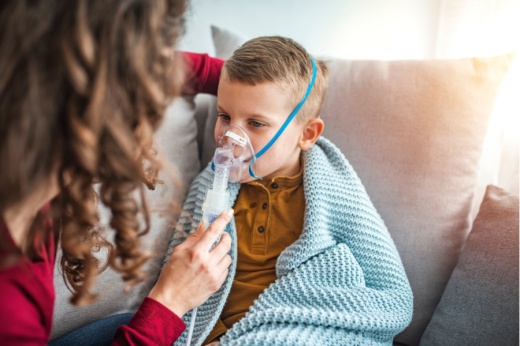Providing stability through support
For those who rely on oxygen concentrators, dialysis equipment or other essential medical devices, or individuals who live with other medical conditions or mental health diagnoses, an unexpected outage or financial hardship can create significant risks.
“Someone who has a chronic illness might have a flare and end up in the hospital for a couple of weeks,” customer assistance manager Samantha Akins said. “Their utility bill might be due while they're in the hospital, so they can’t pay it. We can work with the customer to create a payment plan so they don't come home from the hospital to a house that doesn't have power or water. We can also connect them to a network of agencies that have access to funds to help assist with paying the bills or fulfilling other needs. If a person is in the hospital, they need to focus on healing.”
The registry also provides direct assistance during emergencies. If a boil water notice is issued, for example, the city works to ensure that affected individuals receive clean water deliveries.

Preparing for outages before they happen
Power outages, whether caused by storms, equipment failures or other disruptions, can be especially dangerous for medically vulnerable residents. To help customers prepare, the MVR works with enrollees to create personalized backup plans.
“We ask a series of questions related to the impact of how many hours a person can go without power,” Akins said. “If it's two hours, they might say they’re okay because they have a backup generator or a backup battery they can use. If it's 48 hours, they might say they can’t go that long, so the plan could be that they’re going to stay with their sister for a few days.”
In addition to planning, the program sends advance notifications ahead of severe weather events. Participants receive texts, calls and emails reminding them to charge medical devices, stock up on supplies and review their emergency plans.

Expanding resources for greater resilience
In November, the MVR introduced a new initiative aimed at helping customers stay connected during outages. Through this effort, medically vulnerable residents are being provided with a power bank and weather radio device, ensuring they have access to critical alerts and backup power for small devices. The device itself can be recharged either by plugging it in or using solar power.
“We started delivering them in March 2025,” Akins said. “Everybody in the program will hopefully have one within the next several months.”
How to enroll
Austin residents who rely on electricity or water for medically necessary devices can apply for the MVR online or by calling 512-494-9400 to request a paper application. Once submitted, eligibility is verified through a medical provider.
Re-enrollment is structured based on medical need. Customers with life-sustaining equipment, such as ventilators or dialysis machines, receive lifetime enrollment, while those with chronic conditions recertify every five years. Individuals with temporary conditions, such as chemotherapy treatments or high-risk pregnancies, must renew annually.

A commitment to protecting Austin’s residents
With advancements in medical technology and the increasing use of rechargeable medical devices, the demand for uninterrupted utility service continues to grow. The MVR remains a vital resource in ensuring that Austin’s at-risk residents have the support they need to stay safe and secure in their homes.
To learn more about the Medically Vulnerable Registry or to apply for assistance, visit their website or call 512-494-9400.
The above story was produced by Multi Platform Journalist Sydney Heller with Community Impact's Storytelling team with information solely provided by the local business as part of their "sponsored content" purchase through our advertising team.






